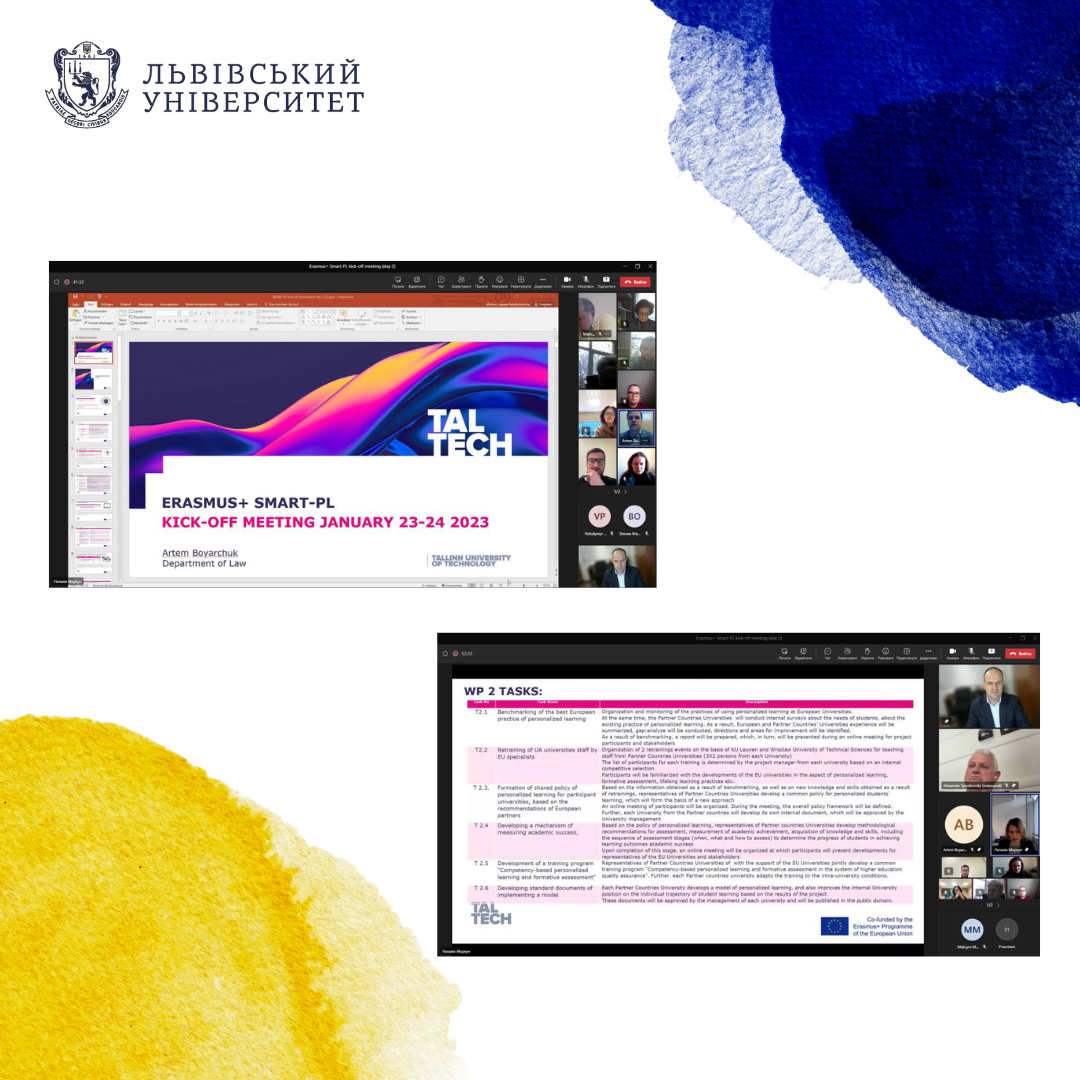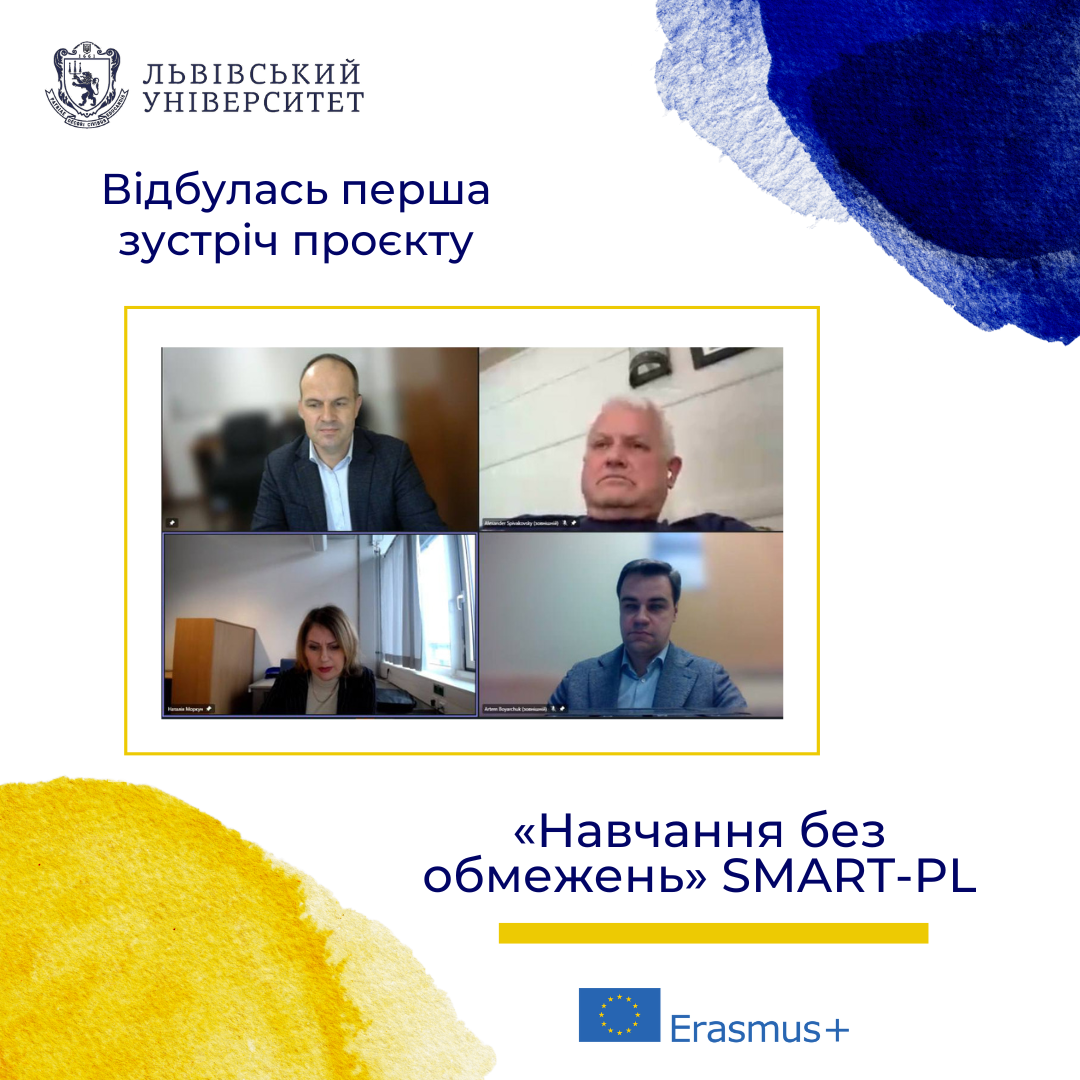 Innovative approaches to the organisation of the educational process today, in times of war, are becoming especially useful for Ukraine. It is thanks to new solutions that involve digitisation and its manifestation in forms of mixed and hybrid learning that education becomes accessible to students with a wide variety of individual needs: people from different regions, with disabilities; applicants who want to learn another profession despite their occupation, etc. At the same time, the latest teaching methods are also handy for scientific and pedagogical workers, as they allow you to share your experience in the simplest, most understandable way. The three-year project SMART-PL – “Personalization of the student learning model based on the virtual educational environment of intellectual learning “Learning without restrictions” is aimed at the construction of such solutions, which is implemented by a consortium of European universities: Tallinn University of Technology, Catholic University of Leuven, Wroclaw University of Science and Technology, Lviv National University of Ivan Franko, Karazin Kharkiv National University, Kherson State University, Kryvyi Rih National University, Khmelnytskyi National University, Odesa National Polytechnic University with the participation of the Institute of Higher Education of the National Academy of Educational Sciences of Ukraine
Innovative approaches to the organisation of the educational process today, in times of war, are becoming especially useful for Ukraine. It is thanks to new solutions that involve digitisation and its manifestation in forms of mixed and hybrid learning that education becomes accessible to students with a wide variety of individual needs: people from different regions, with disabilities; applicants who want to learn another profession despite their occupation, etc. At the same time, the latest teaching methods are also handy for scientific and pedagogical workers, as they allow you to share your experience in the simplest, most understandable way. The three-year project SMART-PL – “Personalization of the student learning model based on the virtual educational environment of intellectual learning “Learning without restrictions” is aimed at the construction of such solutions, which is implemented by a consortium of European universities: Tallinn University of Technology, Catholic University of Leuven, Wroclaw University of Science and Technology, Lviv National University of Ivan Franko, Karazin Kharkiv National University, Kherson State University, Kryvyi Rih National University, Khmelnytskyi National University, Odesa National Polytechnic University with the participation of the Institute of Higher Education of the National Academy of Educational Sciences of Ukraineand the National Agency for Higher Education Quality Assurance.
Yesterday, January 25, the first organisational meeting of partners ended, which included a discussion of the action plan within the SMART-PL project, aimed at implementing the best practical experience in organising the educational process focused on student needs. Participant of the meeting, Vice-Rector for Scientific and Pedagogical Work and Informatization Vitaliy Kuharskyi, notes: “Ukrainian education today, more than ever before, needs innovative solutions, and during the years of the pandemic and the war, we have repeatedly proven that we know how and can implement them. Therefore, Lviv National University strives to do everything now so that quality knowledge can be acquired using the most modern, convenient, student-centred practices and services.”

The model built into the project allows students to develop their skills, possibly using digital technologies based on individual elements. It will also help to independently evaluate one’s achievements, increase motivation for self-control, and facilitate the learning process. In addition, the model creates opportunities to control the path of obtaining education for people with disabilities. Its goal is also to improve the educational programs of higher education institutions by distributing program learning outcomes between educational components, improving educational materials, and ensuring secure communication between students, teachers, and administration.
A key element of activity in a pro is strengthening the interaction of objects of all interested parties (workers, the public, and state institutions) to create a flexible mechanism for adapting learning outcomes to changes in the market and modern technologies.
We note that Lviv University became part of a large-scale and widely known project aimed at increasing the effectiveness of education in the 21st century, which is full of new challenges and surprises.